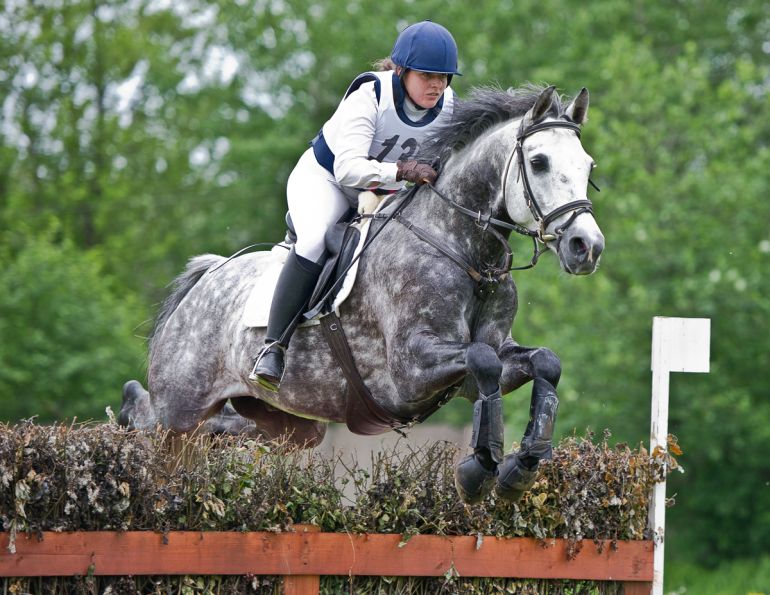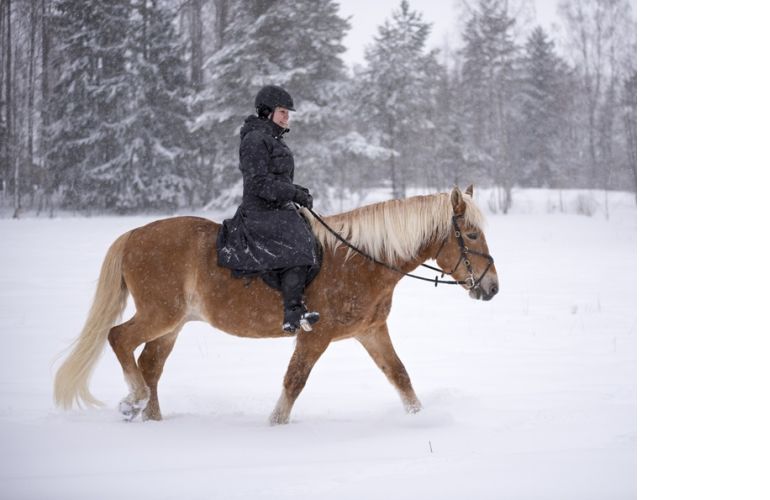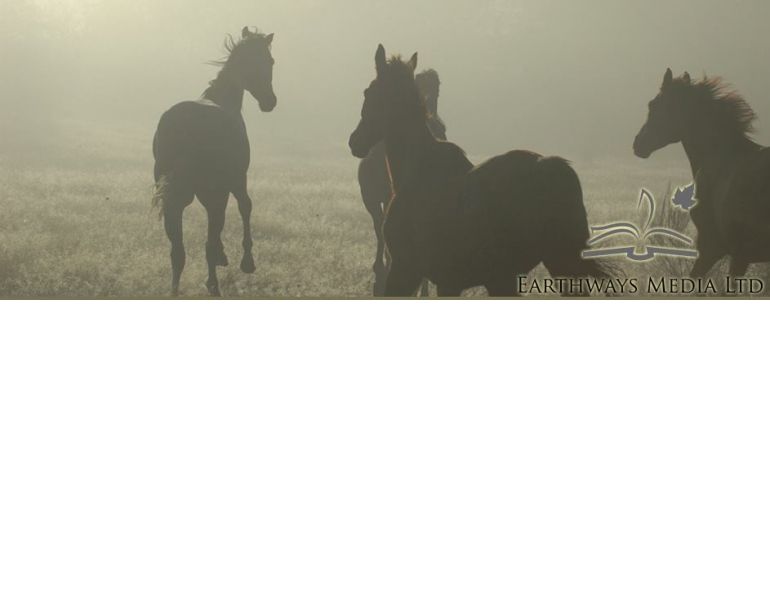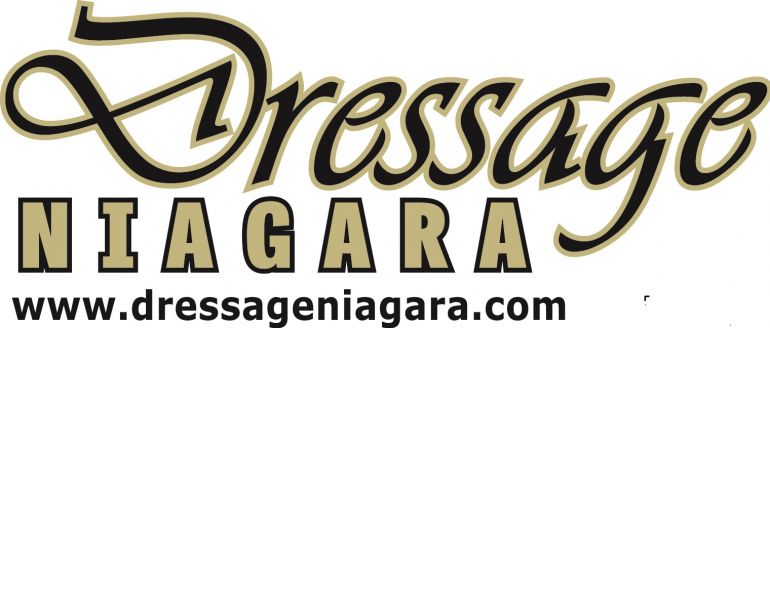By April Clay M.Ed., Registered Psychologist
Preparing yourself for a good ride may not be as difficult as you think. Developing a pre-ride routine is an easy and effective way to make sure your rides count. And as a bonus, you may just end up with a very thankful horse.
Riding is a team sport. You are partnered with an animal in order to achieve certain goals. As you are the leader, you determine the direction and effort necessary to reach those targets. It is your task to communicate these directives in a way your equine teammate can understand. From this perspective, every ride can be thought of as a conversation.
Just like our human conversations, many distractions can enter the picture to disrupt the message. You may drag any number of issues with you into the ring – a fight with a coworker, disappointment in a friend, or stress from school. All of these mood-altering experiences have the potential to cause static in your rider-horse conversation. Protecting this conversation from unnecessary distraction is only one service a routine can provide.

Create a pre-ride routine for your schooling sessions. Identify your needs and those of your horse, and plan your pre-ride routine to address those specific needs. Photo: Thinkstock/Moodboard
One Routine, Many Benefits
Think of what an athlete encounters when he or she arrives at an Olympic venue. There are a multitude of distractions both pleasant and unpleasant – new people, rings, celebrations, foreign food, and atmosphere can pull focus away from the task at hand. When stepping into their pre-performance routine, the Olympic athlete must cut out the noise and focus in on what is really relevant to their performance. Doing so makes for a whole lot less stress.
“Before I had a routine, my focus was everywhere. I was always watching other riders, worrying about measuring up or disappointing someone,” says Beth, an established amateur competitor. “Now, I know what I should be doing at all times before I go in that ring. And everything I do relates to getting the best out of myself. I have specific steps that I follow. It really calms me down.”
Besides reducing show ring jitters, routines can help you establish a consistent approach to your ride. Karen, a dressage rider who had a tendency to be hard on herself and become negative easily, developed a way to start her ride to help anchor her mind in the positive. “Before every ride I always think of three things I like about my horse and am thankful for. This sense of gratitude helps me focus on the good stuff. It also helps me start from a really positive place. I also say ‘thank- you’ at the end of every ride.”
You can use a routine to start a training ride or prepare yourself for competition. The benefits are similar. Taking certain steps can assist in reducing stress and distraction, help you focus on the task at hand, and maximize your chances of being “in the zone” or in the best state to produce a successful ride.

Like other top riders, Olympian Ian Millar knows the value of having a solid mental focus, which is especially difficult at the elite level where distractions are abundant. When he is focusing on a competition, he wants to deal with his horse, his groom, and his trainer, and uses his team to protect his focus. Photo: Robin Duncan Photography
Getting Started
A pre-performance or pre-ride routine begins with where you want to end up – your ideal state. How do you want to feel mentally, physically, and emotionally? What will bring forth your best effort? The routine you build should then help direct you to that ideal state.
Junior rider Emma wanted to start her competitive rides with more confidence. She often rode much less effectively at shows, and her nerves got the best of her. So Emma came up with three steps to prepare her to ride with confidence. “My way to confidence is to listen to music while I tack up. This keeps the negative thoughts out and improves my mood. Next, I focus on my goal for warm up – a strong forward canter. Before I go in the ring, I visualize using that kind of canter to ride the course. I find my routine really helps. It has me riding again instead of being scared and forgetting what I know.”
So ask yourself: What do I need for my best ride? Relaxation, energy, positivity, or courage? Routines are as individual as the riders who use them. Everyone needs something a little different and can find a personal way of meeting that need.
Before you tackle constructing a pre-competitive routine, challenge yourself to create a system for your training rides. Call upon your mental skills such as visualization, positive self-talk, focus control, and goal setting. How can you use one or more of these skills to prepare yourself for a great ride?
Another way is to think about your routine as your “mental tack-up.” You are readying your mind to think in the right direction.
Here are more examples:
- Visualize – Watch a video clip to reconnect with a past ride you felt proud of.
- Use music – Put a power phrase like “Do your best, forget the rest” to a tune and play it in your mind as you approach the in-gate.
- Restart your breath – Use a cycle of three deep breaths paired with key words of your choice, such as “Let go.”
- Focus in – Imagine your mind like a camera. It pans out to take in the entire environment around you, and then bit by bit adjust your camera to only include what is important to your ride.
Choose a Simple Formula and Start Experimenting
Remember that routines are shortcuts that help guide you to the place you need to be – your ideal state. So don’t get too complicated. Choose carefully as each step of your routine should address an identified need for yourself or your horse. Most routines can do double duty, for example a goal may calm both yourself and your horse during warm-up. Your self-talk can be designed to alleviate your show ring nerves and ultimately provide reassurance to your mount.
Reviewing and Revising Your Performance Routine
Your mental tack up and pre-performance routine won’t always remain the same. As you develop and have different needs, then so should your preparation. Perhaps as your butterflies become more manageable, your routine will need to change to focus on your energy or your horse’s state. Routines can also become stale and meaningless over time, so you may want a change just to keep things fresh.
To read more by April Clay on this site, click here.
Main photo: Thinkstock/Werner Images




























